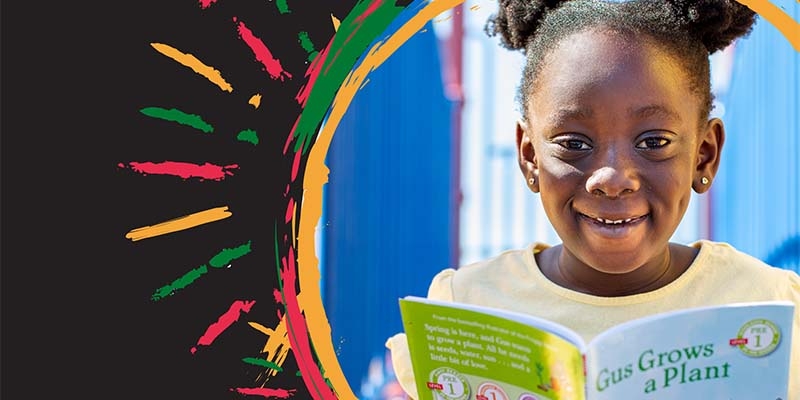2024 IN REVIEW: TOGETHER WE’RE BUILDING FUTURES
2024 has been a monumental year for children around the world. Thanks to your support, Save the Children has worked tirelessly to create a brighter future for children everywhere—a future they truly deserve.

Khongorzul, 6, lives with her father Gantulga, 47, and mother Ariuntsetseg, 39, who live in Sukhbaatar province. Their winter camp is 20 km from the nearest settlement.
The couple have four
children, one is school age (9th grade, boy), the youngest is Khongorzul, 5, who stays with the couple at
their winter camp as she is too young for school dormitory, and with nobody to take care of her at the province centre.
Gantulga says the difficult Dzud situation will last until fresh grass starts growing in late April or early May. He said he tried to
get his 9th grade boy take a leave from school to help out with the livestock, but the teacher convinced him that his son’s education should take priority.
The family had over 300 livestock but now have less than 100 due to Dzud. They had only few livestock left, which feed on some dry
grass, next to piles of dead animal carcasses near the animal enclosures.
Credit: Khash-Erdene Bayarsaikhan/ Save the Children
1. January
Extreme cold weather, called a 'dzud', was impacting herding families in Mongolia, like 6-year-old Khongorzul's. By delivering cash and livestock to feed people living in remote areas, Save the Children helped families make it through the harshest months of the year.
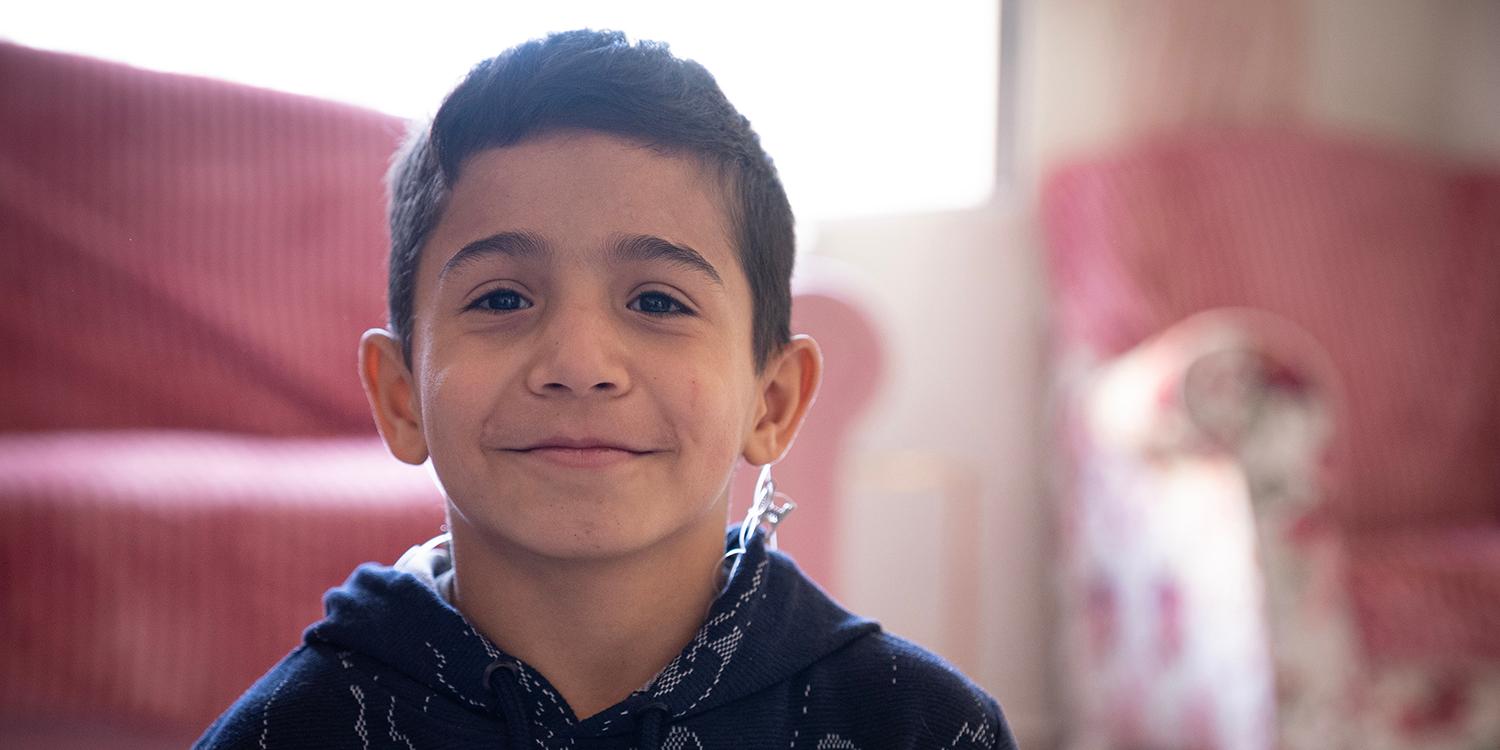
Tülay, 36, is a mother of four, in Gaziantep, Türkiye. Two of her children Cihan*, 11 and Hilal*, 16, have a hearing disability, which has been challenging for the family to cope with.
Despite initial treatments and the application of cochlear implants, the children's devices has malfunctioned for 2.5 years, disrupting their lives. Financial constraints and the aftermath of the earthquake in 2023, made it even more difficult for the family to find replacement hearing devices, which affected Cihan* and Hilal*’s social life and education.
After the earthquake, Save the Children supported the family with care packages and toys, and arranged for Cihan* and Hilal* to have new hearing devices fitted. Now, more than three months later, both siblings can hear and communicate, and are back to learning and playing with their friends.
Now Tülay is determined to support her children to study, and help others in the future. And in the short term, the family's adoption of a hearing-impaired cat, named "Gece," has added even more joy to their lives.
Credit: Ayse Nur Gençalp / Save the Children Türkiye
2. February
Cihan, 11, who has a hearing impairment, lives with his family in Türkiye. Sadly, they lost their home in the 2023 earthquakes, which left his mother struggling financially and unable to buy him the cochlear implants he needed. Save the Children arranged to have Cihan’s new cochlear implants fitted. Now, he is communicating better than ever, and loves playing with his siblings
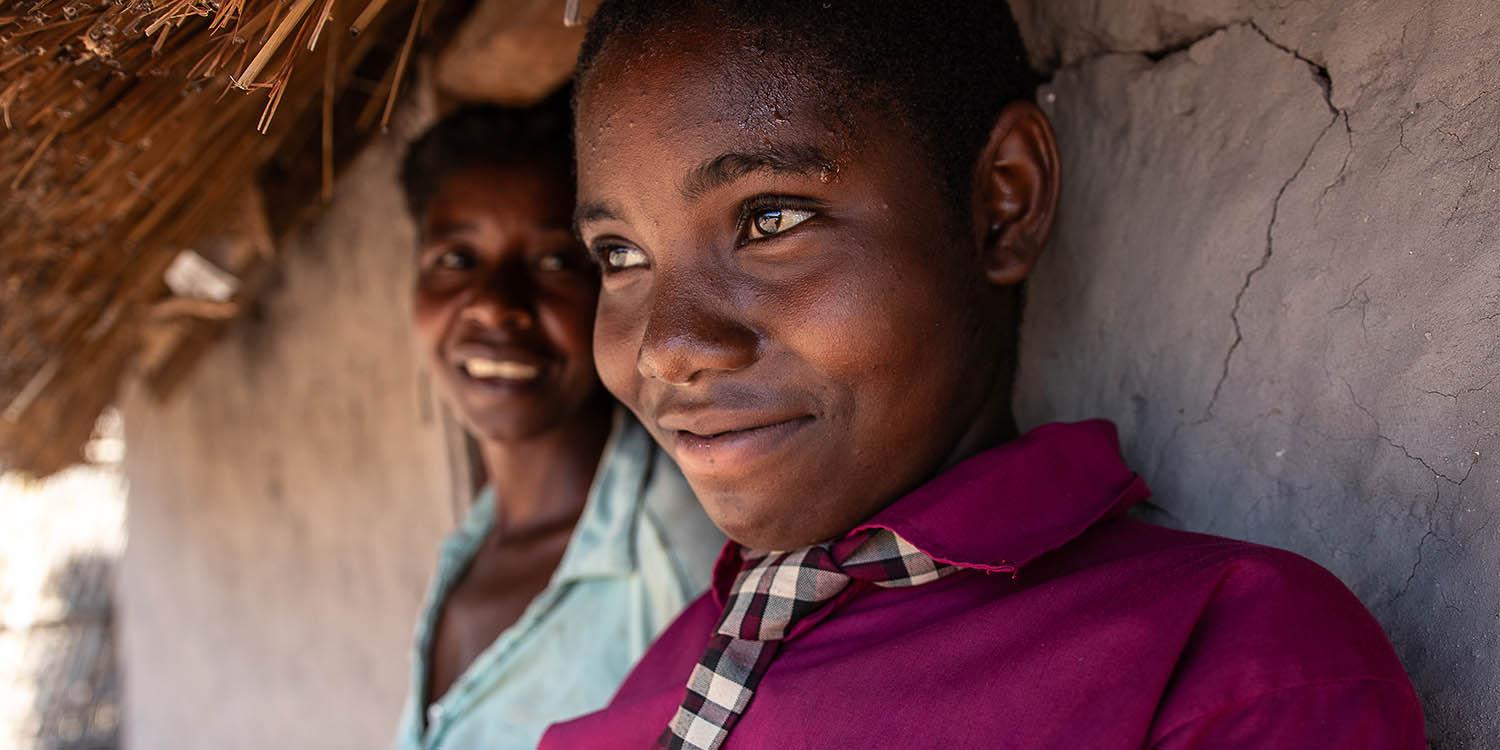
Chimau is 13 years old and lives in Western Province in Zambia with her mother, Inonge (38), her brother Lawrence (7) and her grandmother Mary (68). The region has been hit with the country’s worst drought in 20 years, leaving Chimau and her family – who rely on growing their own food to survive – in a desperate situation with very little to eat.
The rainy season in Zambia normally stretches from October to March, but during the 2023/24 rainy season there have been intense dry spells and Inonge says when the rains started they planted their crops, but then the rains suddenly stopped. Her ground nut crops have failed, and her maize crops – which were due to be harvested in May – have already shrivelled up and died.
Inonge also used to do small jobs on people’s farms weeding and cutting shrubs, but even these jobs are hard to find now as everyone has been impacted by the drought. The only occasional work she can find is washing clothes at the nearby school and mission.
Chimau says they only eat one meal a day, and that hunger is impacting on her studies. She says she feels sick and gets a headache. In class, she can’t concentrate because she’s thinking about food and falls asleep.
Seven out of 10 provinces in Zambia have been impacted by the intense drought and the government has declared a national emergency. More than 1 million children are facing severe food shortages and hunger as the El Niño induced dry spell kills crops and dries up water sources.
Credit: Sacha Myers / Save the Children
3. March
Chimau, 13, lives on a farm with her family in Zambia, but drought has hit them hard, and food is scarce. Chimau was only eating one meal a day, which left her feeling too tired and weak to go to school. Save the Children supplied Chimau’s family with nutritious food to help them get through the drought. Now, Chimau is back studying and enjoying her favorite subject, English.

This is a story about a girl in the eye of a storm. You might not notice it from the way 12-year-old Atika and her best friend swap stories as they walk to school together. Or as Atika washes the dishes and sweeps the yard after dinner. Or as she plays affectionately with her family’s horses – out in the fields she loves.
But the signs are there. And for Atika’s family, they’ve become impossible to ignore. They’re in the landscape where Atika lives in East Sumba, Indonesia. “The trees are too brown…” she says: “The fields are burned.” They’re in the way her community’s crops failed last year; decimated by drought. They’re in the number of children missing school to help out at home or search for food; or because their parents couldn’t afford to eat, let alone cover the costs of uniform and equipment. And they were there in how tired Atika used to get after a long, dangerous walk to fetch water.
But this year Atika doesn’t have to walk so far, and nor do her friends and neighbours. Save the Children and local partner, the Stimulant Institute, have introduced a series of life-changing initiatives, including a solar powered water system that pumps water to taps in the community. So for the first time, people have clean water to drink nearby, and effective irrigation for the crops they rely on for food. It’s the first of many signs that this community’s climate resilience is growing; and part of a programme of Anticipatory Action, which is harnessing community expertise and a deep understanding of climate change to protect villages – and lives – like Atika’s.
The other signs of hope? School attendance is up now that water is accessible nearby and boosted by the cash assistance we’ve provided to cover school costs. And the community is better prepared for climate-related emergencies thanks to educational sessions delivered at schools. We’ve also supported eco-friendly agricultural training for families like Atika’s, so
Credit: Ulet Ifansasti / Save the Children
4. April
Atika, 12, loves spending time in her village’s community garden. She lives in East Sumba, Indonesia where extreme weather was badly affecting her community. Now, Save the Children has set up a new water supply, delivered hardy seeds and helped the village become more resilient in the face of extreme weather through agricultural education. Atika enjoys putting what she learnt into practice and getting her hands dirty!
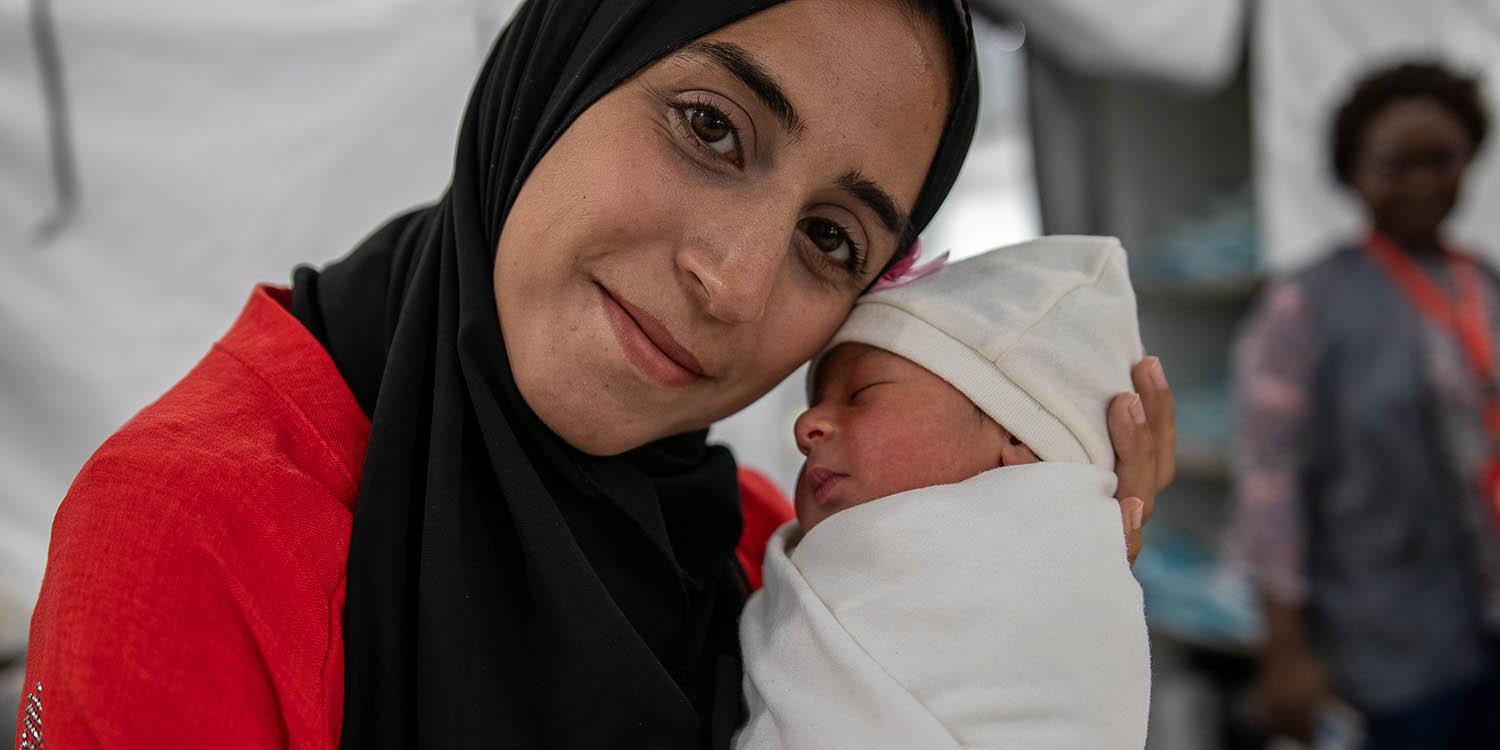
Tima* (26) found out she was pregnant in July 2023. She was excited to be having her second child and decorated a room in their home in preparation for the new baby. She thought about how she would spoil her new baby and how she would provide it with the best food and nice clothes.
Then in October 2023, the war in Gaza started and everything changed. Tima, her husband, her son Hani* (19 months) and her parents, including her mother Eileen* (49), were displaced multiple times as fighting expanded across the Gaza strip. Tima says the most terrifying night was when they were sheltering in a greenhouse and bombs were falling all around them and bullets were slashing the plastic of the greenhouse.
Tima says it’s been hard being pregnant during the war. They now live in a tent in central Gaza, and they do everything on the ground – cooking, washing, eating and sleeping. Tima’s back ached and she was exhausted. She was also very worried about where she would give birth safely, given the continuous attacks on healthcare facilities during the war.
Tima visited the hospital where Save the Children is providing life-saving services for children and their families and had pre-natal check-up. Tima liked the facility and asked if she could give birth when she was due. Baby Lana* then arrived on 26 April 2024 and was the first baby to be born at Save the Children’s new maternity unit in the Gaza Strip, which was set up with the Emergency Health Unit. Tima and Eileen were so relieved when Lana arrived safely. Tima says her husband has red hair, so her daughter definitely looks like her.
Although baby Lana was healthy when she left the hospital, after three days she developed a fever, refused to breastfeed and had blood coming from her umbilical cord. Tima was quick to bring her daughter back to the hospital where she was admitted to the inpatient ward and was treated by the Emergency Health Unit’s Dr Ana Paola Cardenas.
Dr Cardenas said baby Lana had contracted
Credit: Sacha Myers / Save the Children
5. May
Amidst the dangers and bombardment in Gaza, a precious new life started. Lana was the first baby born in Save the Children’s maternity unit. Lana and her mother Tima received support throughout the birth and follow-up medical care in her first few days of life. Tima is excited but worried about what the future holds for her tiny daughter.

Rashid* 9, and Nabi*, 12 are brothers who live with their father Wasiq*, 60. 8 years ago the family had to leave their home because drought caused a shortage of water and the family’s land transformed from green farm land to a dry desert. Now however, Save the Children has installed a solar powered water system in their village which has allowed the family to return home.
Credit: Save the Children
6. June
8 years ago, Nabi and Rashid’s family were forced to leave their village in Afghanistan when the water supply dried up. But now, Save the Children has built a new solar powered water system that pumps over 25,000 liters a day. This means the boys are back home in their village, and their family has started farming again.
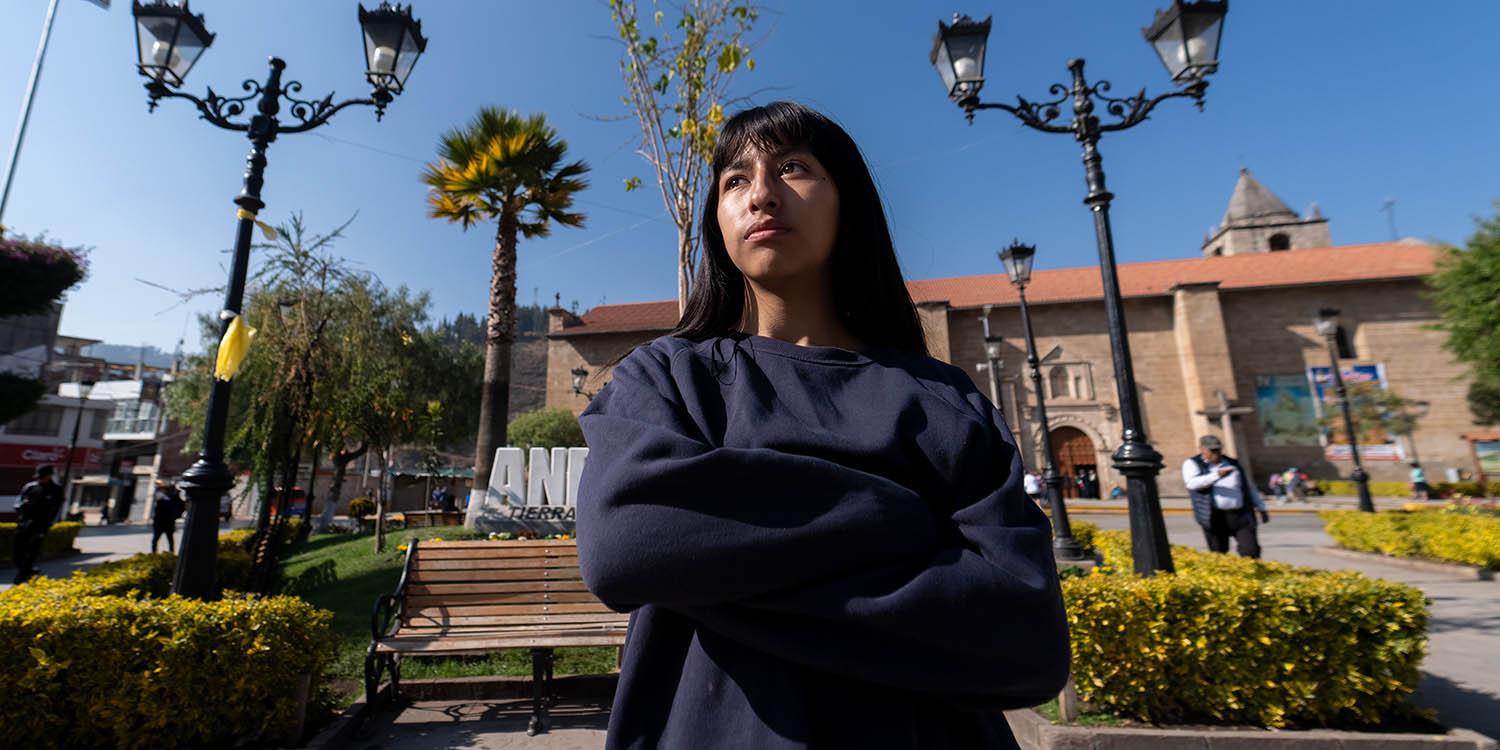
Credit: Miguel Contreras/Save the Children
7. July
Anai, 16, is a passionate child activist, who has been attending workshops and activities with Save the Children for many years. This year Anai was chosen to represent children from Peru at the global Summit of the Future. She spoke in front of world leaders about children’s rights.
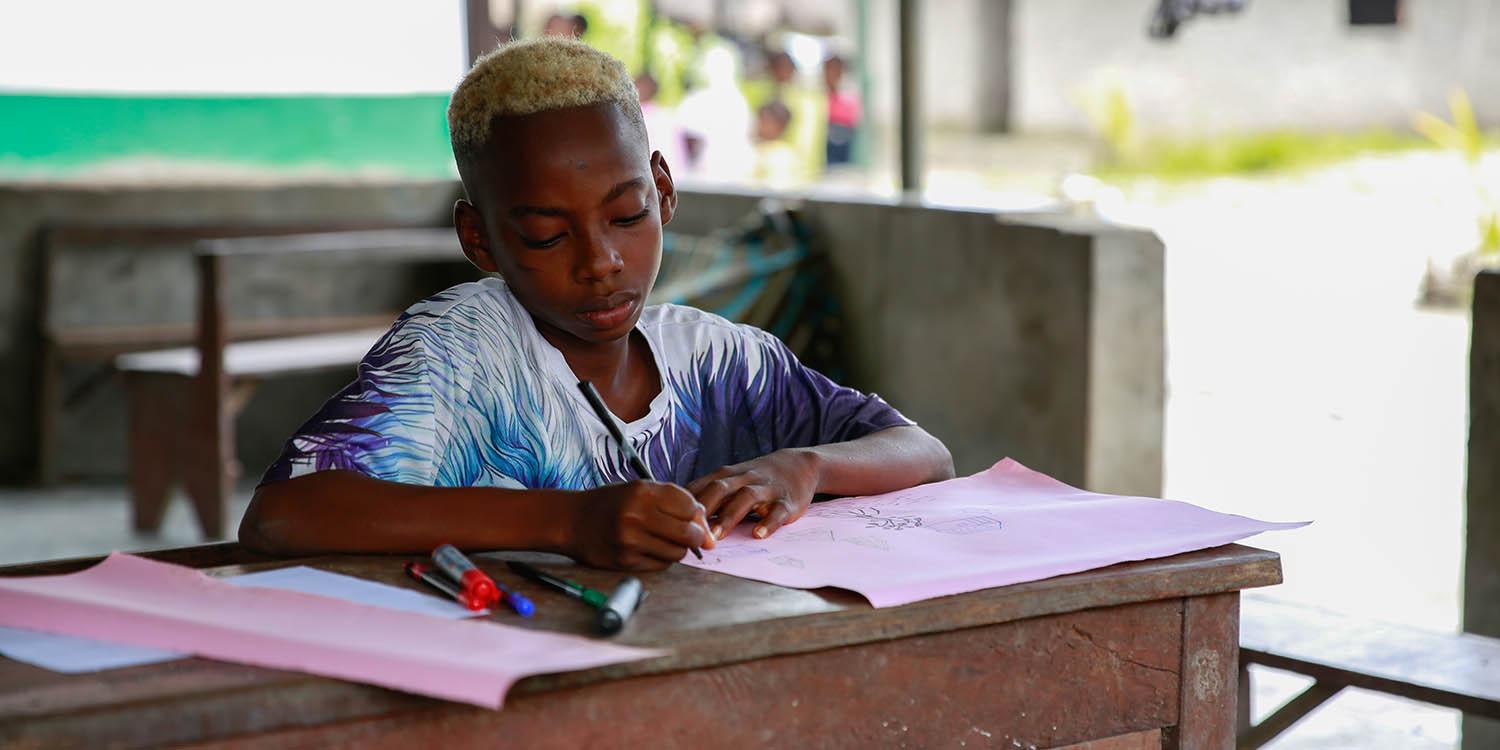
In May 2023, a terrible fire burnt down many houses in Djelah*
Credit: Shona Hamilton/Save The Children
8. August
Alfred, 15, loves making art, but he was finding it hard because his village in Sierra Leone was under threat from flooding, and he felt unsafe and worried. Now, Save the Children has helped the community protect the village. Alfred is more relaxed and can get back to the things he loves, like drawing his best friends.

Marko*, eight, poses for a portrait in Bucharest, Romania on July 11, 2024.
Credit: Oksana Parafeniuk / Save the Children
9. September
Marko, 8, fled the war in Ukraine with his mother and now lives in Romania. All the upheaval meant he missed some school, so his mum enrolled him in their local Save the Children Hub. Here, Marko has taken catch-up classes and spent time playing and making friends, which has helped him settle into a new city.
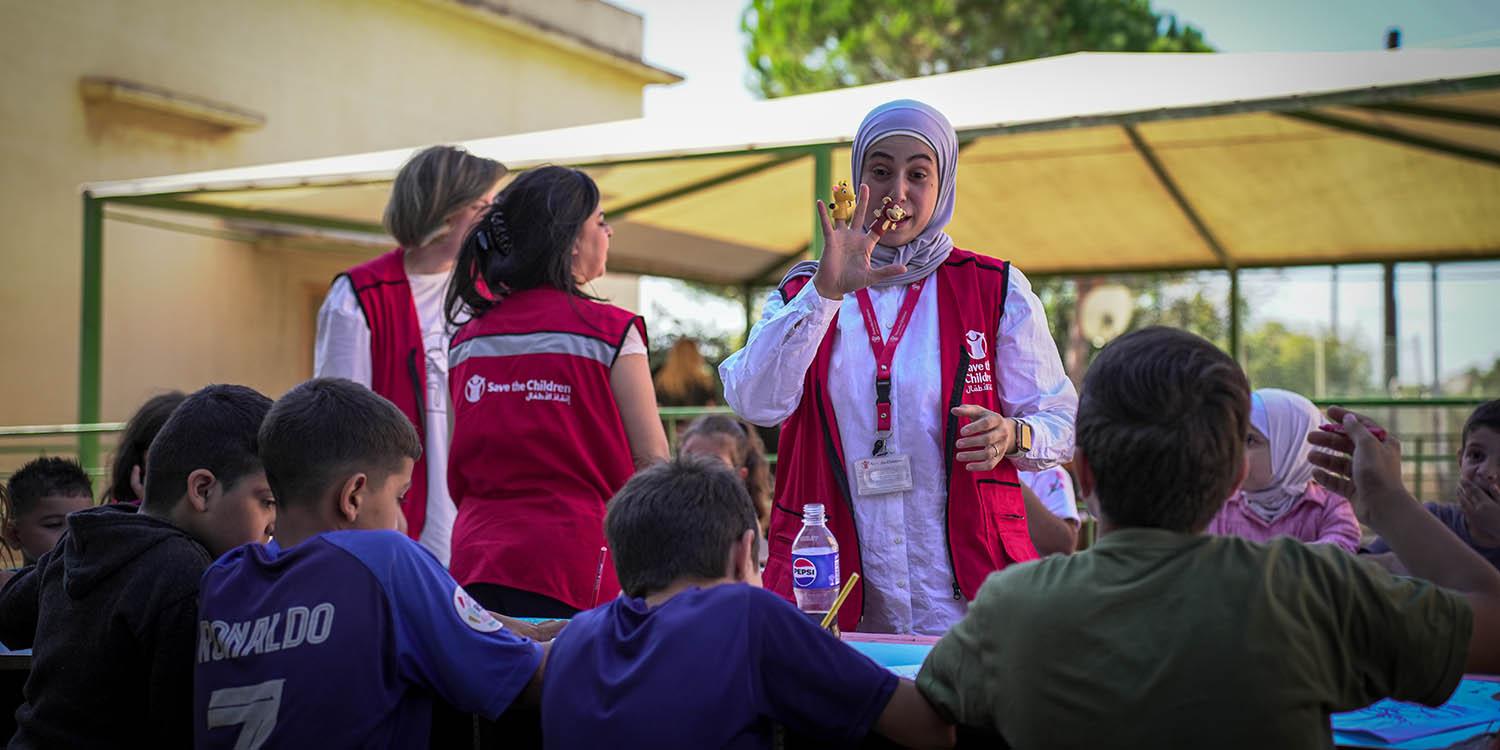
Save the Children in Lebanon has deployed the Emergency Response Team to support families fleeing from Israeli attacks to collective shelters in schools. We are distributing hygiene kits, water, bedding and other essentials as well as providing recreational activities for children.
Credit: Jaafar Hamdan/Save the Children
10. October
As the situation in Lebanon dramatically escalated, children's mental health was badly affected. Save the Children set up safe spaces for children to play and recover at the many collective centers, referring them for additional support if needed. Staff run puppet shows and face painting among other supportive activities.

Alex* is a 10-year-old child from a Save the Children-sponsored community in eastern Yucatan. He currently attends elementary school in the community but, due to family problems, he does not attend classes regularly and even says he would like to stop attending school completely.
He enjoys spending time with his grandmother and even her house is his favorite place to be and spend time.
He is also part of Save the Children's community club, where he and other children from the community learn about health, hygiene and the promotion of reading and writing. This space has become very important for Alex*, as he says he enjoys attending because here he can play, and he has learned to write and read better.
In the last session of the community club Alex* and his sister Sofia* were making a healthy food dish with different materials to represent what they have learned about healthy eating and shared that they would like all girls and boys to be able to eat healthy to grow up healthy and strong.
Credit: Maria Jose Medina/ Save the Children
11. November
10-year-old Alex loves attending his local Save the Children community club in Mexico, where he learns about healthy eating. The clubs also heave a special focus on their local area, using traditional foods and languages to help connect children with their culture. The children learn valuable lessons about food, hygiene, reading and writing.
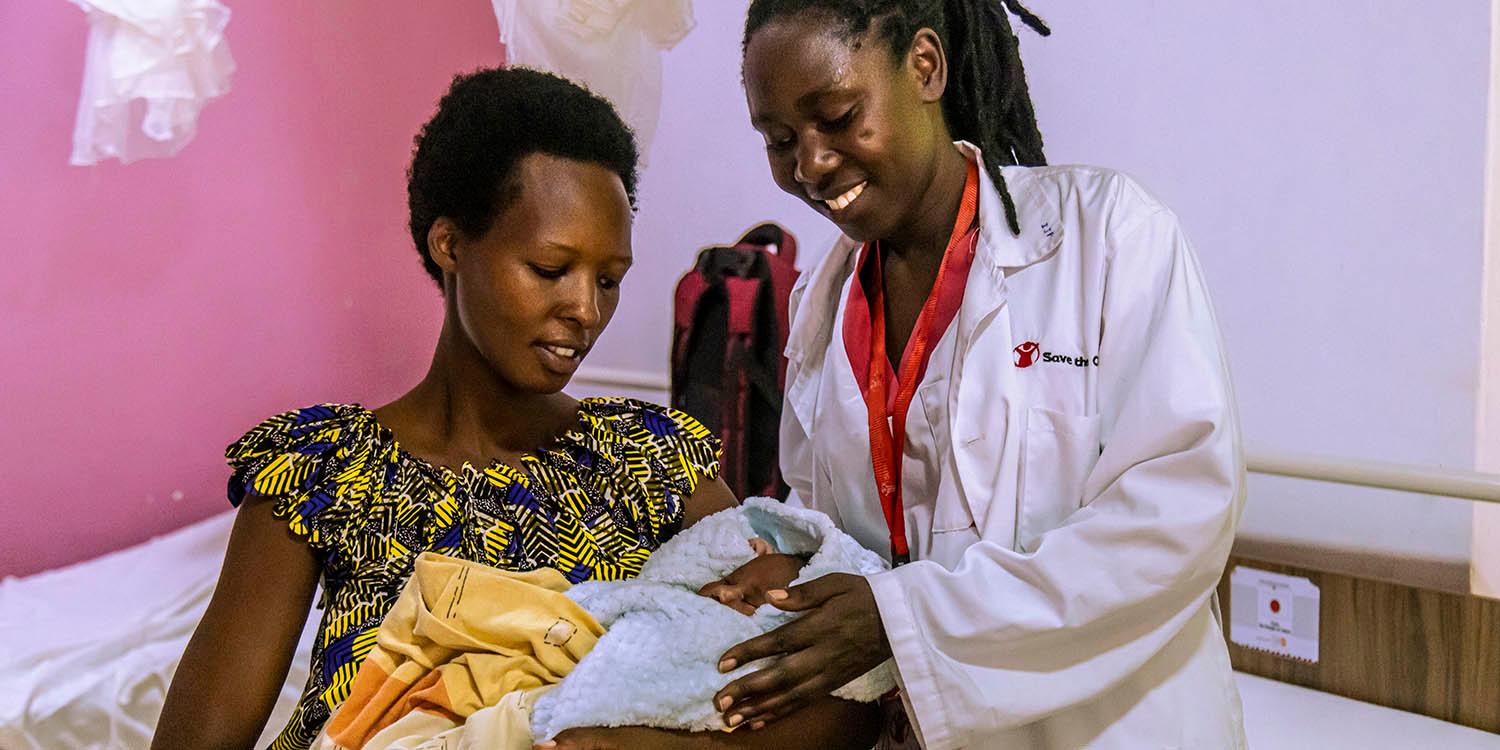
Credit: Yagazie Emezi / Save the Children
12. December
This year, children across the world were happy, healthy, learning, active, hopeful, and safe because we came together to support them. Thank you for supporting Save the Children and helping build children’s futures, in every part of the world, every day of the year.

